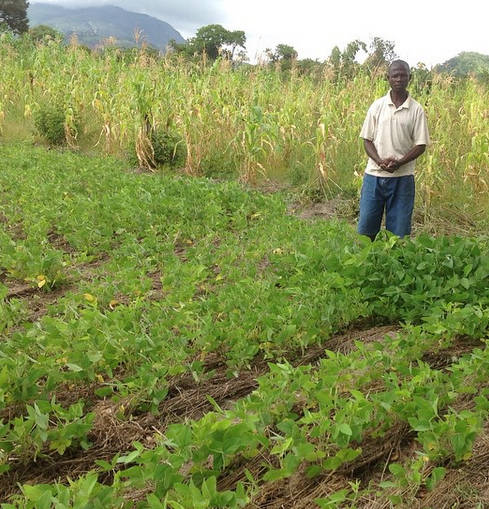
Yara International, a strategic partner of the Norwegian Ministry of Foreign Affairs, is launching Action Africa: Thriving Farms, Thriving Future—an initiative with the goal of mobilizing support for 250,000 smallholder farmers in seven African countries to secure food production and improved food security.
The initiative includes advocacy and partnerships, farmer connectivity and digital solutions, and operational support including 40,000 metric tons of high-quality fertilizers with zinc for improved nutrition. Yara’s fertilizer contribution, combined with agronomic support, is expected to triple maize production and feed more than 1 million people across Kenya, Uganda, Rwanda, Tanzania, Zambia, Malawi and Mozambique for a year.
In Mozambique, Yara International will support farmers to increase their productivity and the nutrition content of their produce by providing them with approximately 1,000 tons of premium quality fertilizer coupled with smallholder appropriate agronomic advice. Under this project, Yara is donating 300 MT of fertilizer to NCBA CLUSA’s PROMAC II project funded by the Royal Norwegian Embassy in Maputo. This fertilizer will reach farmers via PROMAC II’s inputs Green Discount program—an input subsidy initiative involving project-supported last mile inputs retailers, which ensures that farmers are able to access complete input packages (including locally multiplied certified seed) via sustainable and commercial last mile distribution channels.
The COVID-19 pandemic linked to a global recession already poses great challenges to Sub-Saharan Africa. It is important to act now to prevent a future food security crisis and protect production and food supply chains before the joint challenges of the pandemic and global economic downturn take further effect. The food security impact of this pandemic, particularly in East Africa which has already suffered from fall armyworm and the locust infestation, is likely to be devastating and—according to the United Nations—the number of people facing severe food insecurity worldwide could double to 265 million. Farmers in Kenya, Malawi, Mozambique, Rwanda, Tanzania, Uganda and Zambia will soon begin planting, an activity that requires a reliable and timely source of quality inputs together with sound agronomic advice.
Millions of people will depend on the products these farmers will be able to produce. If action is taken now, there is a window of opportunity to support these farmers to maximize their yield potential and avoid a hard hit to the upcoming agricultural season causing even more and longer-term negative consequences.
Millions of people will depend on the products these farmers will be able to produce.
Yara International has dedicated significant resources in infrastructure investment and crop nutrition operations over the last decade in several countries in East Africa. They have a unique network of relevant partners playing strategic roles in supporting agricultural supply chains. Their position can and should be leveraged during a period of potential crisis, when local food production capacity will be absolutely critical.
A five-year project implemented by NCBA CLUSA and funded by the Royal Norwegian Embassy in Maputo, PROMAC II works to enhance food security and farmers’ incomes by adopting conservation farming methods, obtaining formal land use rights, increasing educational and literacy levels, promoting access to and use of agricultural inputs and facilitating their participation in markets. PROMAC II provides training and support on Climate Smart Agriculture practices and technologies to 900 lead farmers, who in turn train and provide technical assistance to their neighboring farmers through a peer-to-peer technology transfer approach. Through this farmer-to-farmer extension network, the project works with a total of 31,500 farmers in Manica and Zambezia provinces.


